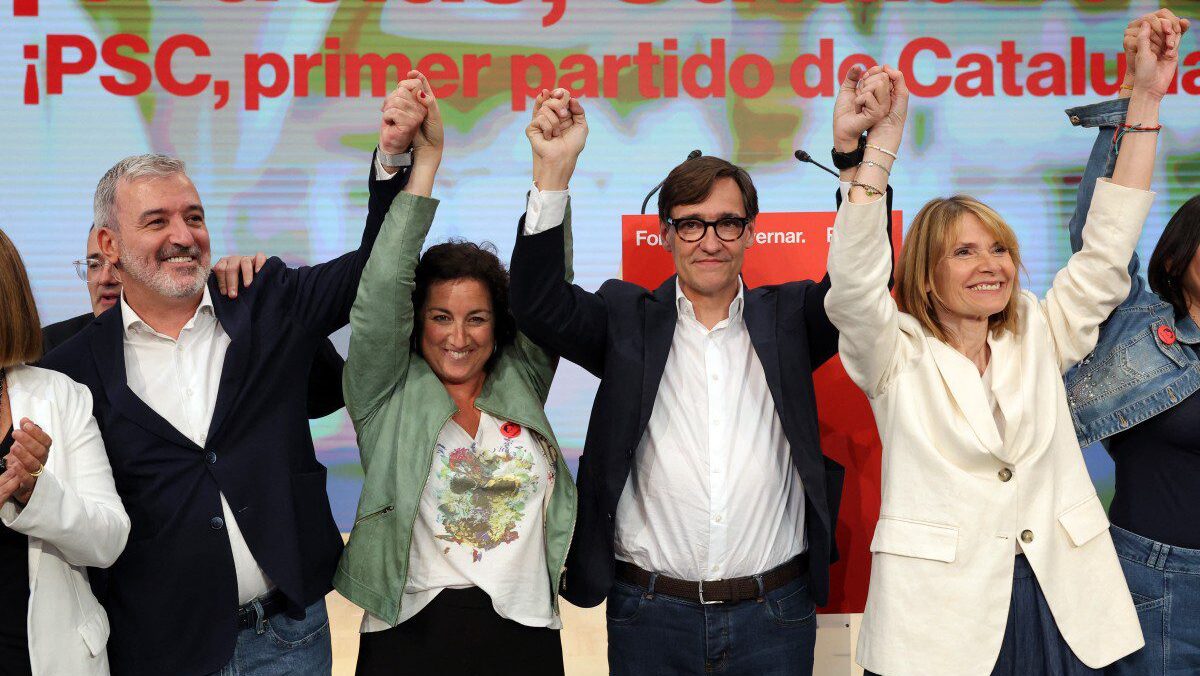
Candidate of Catalonia’s Socialist Party – PSC, Salvador Illa (2R), celebrates his victory during the electoral night following Catalonia’s regional elections, in Barcelona on May 12, 2024.
Photo: LLUIS GENE / AFP
Elections in Spain’s contested Catalonia region have left separatists without a clear possibility of governing the region for the first time in over a decade, but neither is the path clear for any other government to form.
The Socialist party won 42 out of 135 seats in the Catalan parliament, a boost of nine seats compared to the last elections. The separatist Junts party of Carles Puigdemont, who as Catalan president in 2017 led an illegal referendum and attempted to declare the region’s independence from Spain, garnered 35 seats, also gaining seats compared to the last legislature. But the rest of the separatist parties lost seats, principally the left-wing ERC which came in third with only 20 seats in parliament. Altogether, the separatists parties are just shy of a majority to form a government.
The center-right establishment Partido Popular (PP) made something of a comeback in these elections going from three seats in the previous legislature to 15. The national conservative VOX held steady at 11 seats, though it did gain votes.
The Socialists ended election night very pleased with the results for their party but it is still not clear that socialist candidate Salvador Illa will be able to form a government. He will have to get additional support from somewhere. It could very well come from the separatist parties ERC and Comuns, with whom he could reach the 68 seats needed for a majority, but neither party has come out in clear favor of Illa.
At the same time, Puigdemont has not given up the possibility of regaining the Catalan presidency.
“The candidacy that I led had a good result, we are the only pro-independence force to increase in votes and seats, and we assume the responsibility that entails,” Puigdemont told his party and supporters on election night.
He also made a not-so-veiled plea to the Socialists to let him govern, comparing the Catalan election results to last national elections which the Socialists lost but still managed to cobble together a government. He reminded the crowd gathered at his party’s headquarters in France that the distance between his party and the socialists in the regional elections is very similar to the number of seats by which the socialists trailed the PP in the general election.
Illa, too, pledged to assume the responsibility to govern.
The Socialists will also have to keep in mind that they depend on Catalan separatists, particularly Junts, to maintain their weak national government, and separatists have already warned that the Catalan elections will reverberate in national politics.
The only certainty is that negotiations to form a government will drag out as long as possible, likely to the limit of August 26.
This article was updated on May 14, 2024 to correct an error in the number of seats VOX held.
